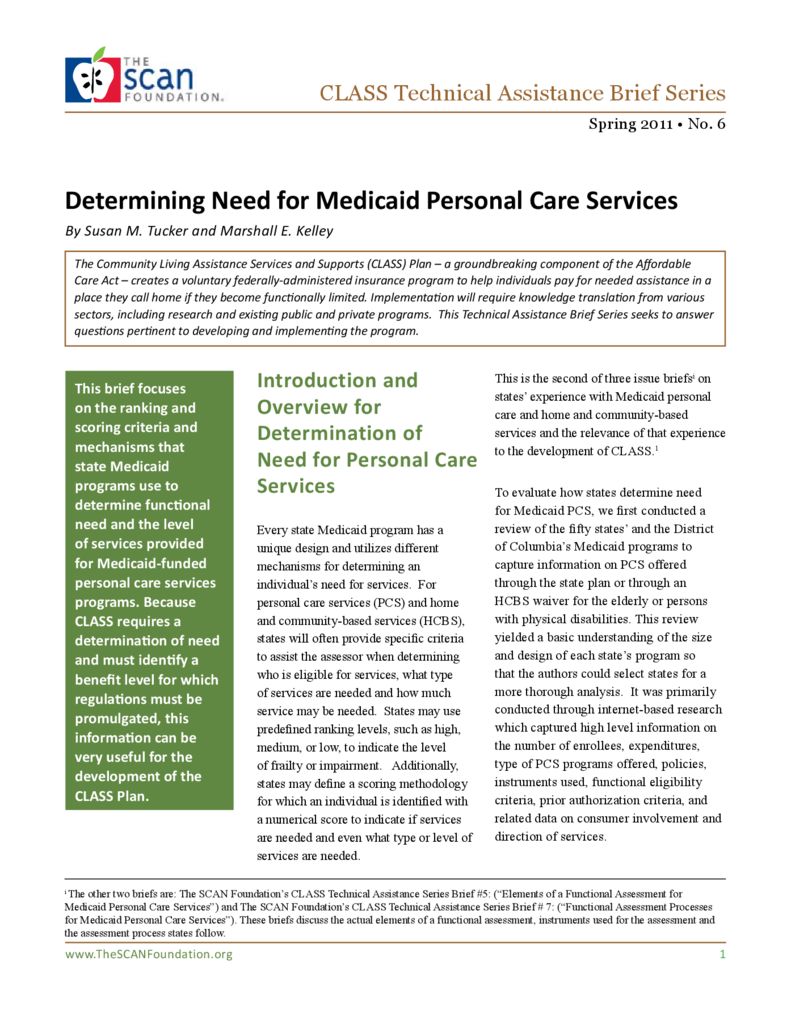Determining Need for Medicaid Personal Care Services
summary
This policy brief focuses on the ranking and scoring criteria and mechanisms that state Medicaid programs use to determine functional need and the level of services provided for Medicaid-funded personal care services programs. This information can be very useful for the development of the CLASS Plan.
Date Updated: 04/06/2011Every state Medicaid program has a unique design and utilizes different mechanisms for determining an individual’s need for services. For personal care services (PCS) and home- and community-based services (HCBS), states will often provide specific criteria to assist the assessor when determining who is eligible for services, what type of services are needed, and how much service may be needed. States may use predefined ranking levels, such as high, medium, or low to indicate the level of frailty or impairment. Additionally, states may define a scoring methodology for which an individual is identified with a numerical score to indicate if services are needed, and even what type or level of services are needed.
Download the publication for all visuals and complete references.
Continue Reading
This policy brief provides an introduction to The SCAN Foundation’s CLASS Technical Assistance Brief Series, which explores many of the critical issues to be considered for successfully implementing CLASS.
This policy brief describes the broad needs of individuals with disability and the wide range of supportive and environmental solutions that can allow for the most independent living possible. It suggests how findings on social and environmental supports for individuals with disability can inform implementation of CLASS.
This policy brief provides background on the historical development of benefit eligibility triggers in the private long-term care insurance market. Understanding how these triggers came into being can provide important information to those charged with implementing the CLASS Plan.


